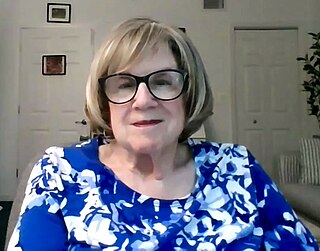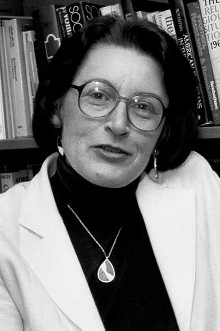Related Research Articles
Women's studies is an academic field that draws on feminist and interdisciplinary methods to place women's lives and experiences at the center of study, while examining social and cultural constructs of gender; systems of privilege and oppression; and the relationships between power and gender as they intersect with other identities and social locations such as race, sexual orientation, socio-economic class, and disability.

Womanism is a feminist movement, primarily championed by Black feminists, originating in the work of African American author Alice Walker in her 1983 book In Search of Our Mothers' Gardens. Walker coined the term "womanist" in the short story "Coming Apart" in 1979. Her initial use of the term evolved to envelop a spectrum of issues and perspectives facing black women and others. Walker defined "womanism" as embracing the courage, audacity, and self-assured demeanor of Black women, alongside their love for other women, themselves, and all of humanity. Since its inception by Walker, womanism has expanded to encompass various domains, giving rise to concepts such as Africana womanism and womanist theology or spirituality.

Elaine Showalter is an American literary critic, feminist, and writer on cultural and social issues. She influenced feminist literary criticism in the United States academia, developing the concept and practice of gynocritics, a term describing the study of "women as writers".
Postmodern feminism is a mix of postmodernism and French feminism that rejects a universal female subject. The goal of postmodern feminism is to destabilize the patriarchal norms entrenched in society that have led to gender inequality. Postmodern feminists seek to accomplish this goal through opposing essentialism, philosophy, and universal truths in favor of embracing the differences that exist amongst women in order to demonstrate that not all women are the same. These ideologies are rejected by postmodern feminists because they believe if a universal truth is applied to all women of society, it minimizes individual experience, hence they warn women to be aware of ideas displayed as the norm in society since it may stem from masculine notions of how women should be portrayed.

Intersectionality is a sociological analytical framework for understanding how groups' and individuals' social and political identities result in unique combinations of discrimination and privilege. Examples of these factors include gender, caste, sex, race, ethnicity, class, sexuality, religion, disability, height, age, and weight. These intersecting and overlapping social identities may be both empowering and oppressing. However, little good-quality quantitative research has been done to support or undermine the practical uses of intersectionality, owing to misapplication of theoretical concepts and problems in methodology.
Janice G. Raymond is an American lesbian radical feminist and professor emerita of women's studies and medical ethics at the University of Massachusetts Amherst. She is known for her work against violence, sexual exploitation, and medical abuse of women, and for her controversial work denouncing transsexuality.

Barbara Smith is an American lesbian feminist and socialist who has played a significant role in Black feminism in the United States. Since the early 1970s, she has been active as a scholar, activist, critic, lecturer, author, and publisher of Black feminist thought. She has also taught at numerous colleges and universities for 25 years. Smith's essays, reviews, articles, short stories and literary criticism have appeared in a range of publications, including The New York Times Book Review, The Black Scholar, Ms., Gay Community News, The Guardian, The Village Voice, Conditions and The Nation. She has a twin sister, Beverly Smith, who is also a lesbian feminist activist and writer.
Daphne Patai is an American scholar and author. She is professor emeritus of the Department of Languages, Literatures, and Cultures at the University of Massachusetts Amherst. Her PhD is in Brazilian literature, but her early work also focused on utopian and dystopian fiction. She is the daughter of the anthropologist Raphael Patai.
Greta Gaard is an ecofeminist writer, scholar, activist, and documentary filmmaker. Gaard's academic work in the realms of ecocriticism and ecocomposition is widely cited by scholars in the disciplines of composition and literary criticism. Her theoretical work extending ecofeminist thought into queer theory, queer ecology, vegetarianism, and animal liberation has been influential within women's studies. A cofounder of the Minnesota Green Party, Gaard documented the transition of the U.S. Green movement into the Green Party of the United States in her book, Ecological Politics. She is currently a professor of English at University of Wisconsin-River Falls and a community faculty member in Women's Studies at Metropolitan State University, Twin Cities.

Alice Emma Rossi was a pioneering American feminist and sociologist.
Ann Ferguson, is an American philosopher, and Professor Emerita of Philosophy and Women's Studies at the University of Massachusetts Amherst. She served as Amherst's director of women's studies from 1995 to 2001. She is known for her work on feminist theory.
Hip hop feminism is a sub-set of black feminism that centers on intersectional subject positions involving race and gender in a way that acknowledges the contradictions in being a black feminist, such as black women's enjoyment in hip hop music and culture, rather than simply focusing on the victimization of black women in hip hop culture due to interlocking systems of oppressions involving race, class, and gender.
Bonnie Ruth Strickland is known for her contributions to the psychology community. From her decades long career at Emory University and University of Massachusetts Amherst to her time as the president of the American Psychological Association (APA) she has contributed a great deal to clinical psychology, social psychology, and feminism.
Irma P. McClaurin is an American poet, anthropologist, academic, and leadership consultant. She was the first female president of Shaw University, and is the author or editor of several books on topics including the culture of Belize, black feminism, African-American history, and her own poetry.
Banu Subramaniam is a professor of women, gender and sexuality studies at the University of Massachusetts, Amherst. Originally trained as a plant evolutionary biologist, she writes about social and cultural aspects of science as they relate to experimental biology. She advocates for activist science that creates knowledge about the natural world while being aware of its embeddedness in society and culture. She co-edited Making Threats: Biofears and Environmental Anxieties (2005) and Feminist Science Studies: A New Generation (2001). Her book Ghost Stories for Darwin: The Science of Variation and the Politics of Diversity (2014) was chosen as a Choice Outstanding Academic Title in 2015 and won the Society for Social Studies of Science Ludwik Fleck Prize for science and technology studies in 2016. Her most recent book, Holy Science: The Biopolitics of Hindu Nationalism (2019), won the Michelle Kendrick Prize for the best book from the Society for Literature, Science, and the Arts in 2020.
Whitney Battle-Baptiste is an American historical archaeologist of African and Cherokee descent. She is an associate professor at the University of Massachusetts Amherst and director of the W.E.B. Du Bois Center at the University. Battle-Baptiste's research focuses on "how the intersection of race, gender, class, and sexuality look through an archaeological lens". She is also the president of American Anthropological Association.
Arlene Stein is an American sociologist and author best known for her writing about sex and gender, the politics of identities, and collective memory. She is Distinguished professor of sociology at Rutgers University where she directs the Rutgers University Institute for Research on Women. Stein has also taught at the University of Essex and at the University of Oregon.
Barbara Haber is a culinary historian and speaker. She is the former book curator of the Schlesinger Library at Harvard University. Haber is credited with expanding the library's focus on women's social history to include food-related books and cookbooks, as well as fiction and memoirs, despite critics that were originally against it. She has authored and co-written books on subjects related to culinary history.

Barbara Zecchi is a feminist film scholar, film critic, videoessayist, and film festival curator. She is professor of Film Studies and director of the Interdepartmental Program in Film Studies at the University of Massachusetts Amherst.
Joya Misra is Professor of Sociology and Public Policy, University of Massachusetts, Amherst.
References
- ↑ Arlene Voski Avakian Papers, 1974-2010. Accessed 19 November 2014.
- 1 2 3 4 5 6 7 8 9 10 11 12 13 14 15 16 "Arlene Voski Avakian". The Outwords Archive. Retrieved 2024-10-04.
- 1 2 3 4 5 6 7 8 9 10 11 Avakian, Arlene Voski. "Arlene Voski Avakian Papers Finding Aid". findingaids.library.umass.edu. Retrieved 2024-10-04.
- 1 2 "Arlene Avakian | University of Massachusetts Amherst - Academia.edu". umass.academia.edu. Retrieved 2024-10-04.